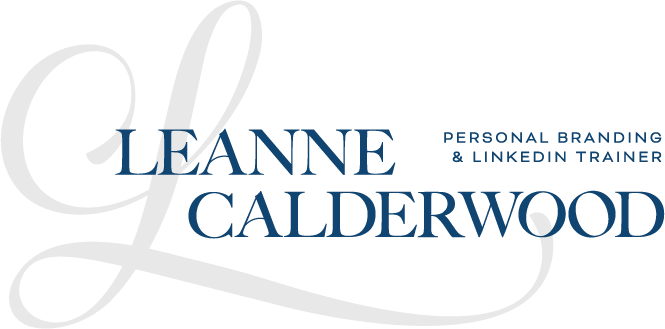Back in 2007, I found myself in an unexpected competition. I had just started as…

Making Networking Tolerable for Introverts
Networking: the dreaded word for introverts, conjuring images of crowded rooms and forced small talk. For those of us who’d rather be anywhere else than shaking hands with strangers, the discomfort is real. But here’s a twist: building a personal brand can make networking – both in-person and virtual – a whole lot easier.
Having a well-defined personal brand can break the ice at industry events, giving you a bit of that confidence boost without the stress of “selling” yourself.
1. Your Brand Does the Talking, So You Don’t Have To
Imagine walking into a room where people already know a little about you. They’ve read your posts on LinkedIn, seen your articles, or even watched your videos. Friends, this happens to me ALL THE TIME. Having a brand and an online presence is my pre-event “elevator pitch”, and the conversation opens warmly versus me trying to force small talk and finding common ground.
Having a personal brand means your values, expertise, and even your personality are out there – making it easier for others to approach you, sparking conversations you’d never have to initiate yourself.
For me, and all of us introverts, this can be a game-changer. You don’t have to start from scratch in every interaction. Instead, your brand does some of the groundwork, creating talking points that others can engage with. Maybe they’ll ask you about a recent post, or share an opinion on a topic you recently covered. Either way, your brand gives people something to connect with, alleviating the awkwardness that often plagues in-person networking.
2. Virtual Networking: Stand Out with Substance, Not Volume
In virtual networking spaces, like LinkedIn ™ (yes, LinkedIn ™ is a networking space), standing out doesn’t mean shouting the loudest. It means showing up consistently with valuable, authentic content. For introverts, this is ideal because you can contribute at your own pace, on your own terms, without feeling drained by constant interaction.
Having a personal brand means you’re creating a digital footprint – a reputation built on the things you’re passionate about, the topics you know best, and the connections you genuinely care to make. Over time, this brings the right people to you and fosters connections based on shared interests. Instead of forced exchanges, you can build meaningful relationships over time, in a space that feels less intimidating than an in-person event.
3. Find Your Icebreakers: Content that Resonates
Think of your personal brand as a set of pre-prepared icebreakers. You’re not walking into the room empty-handed, hoping for a mutual friend or random coincidence to spark a conversation. Instead, you can fall back on topics you’ve shared in your personal brand, things people may have seen or heard from you.
Here’s where to start with icebreaker content:
- Share Your “Why” – Why are you passionate about your industry or niche? When people see the motivation behind what you do, they’re more likely to feel a connection and bring it up when they meet you.
- Industry Insights – Regularly post tips, insights, or questions that spark discussions. This positions you as someone who thinks critically about the industry and provides instant conversation starters.
- Personal Values and Style – Show up authentically, whether it’s sharing your love for tea, quiet creativity, or introversion itself. This helps others see who you are beyond just your job title.
4. Reframe Networking
Introverts can thrive with a personal brand because it reframes networking from “meeting strangers” to “building relationships.” Your personal brand attracts people who already have a reason to connect with you, which means they’re likely aligned with your values, perspectives, or industry focus. It’s no longer just networking for the sake of it but cultivating genuine relationships over shared interests.
5. How to Start (Authentically)
For introverts, building a personal brand doesn’t mean turning into an extroverted self-promoter. If in-person events aren’t your thing, use LinkedIn ™ to make a first impression from afar. When you do meet people, they’ll already feel familiar with you.
Intentionally share what you’re already good at and what you care about. Post content at a comfortable pace, create content for your one niche audience member, and craft a profile that reflects your professional self.
6. More Curated Connections, Less Awkward Babbling
With a personal brand in place, networking becomes less about introducing yourself and more about deepening relationships with those who already know you. The fear of coming off as “just another person at the event” fades because people approach you with a sense of who you are and what you care about.
Having a personal brand allows you to embrace the spotlight without stepping too far out of your comfort zone. It gives you the opportunity to meet people who resonate with your unique strengths and values, not just your professional accomplishments.
So, if networking feels like a necessary evil, consider leaning into a personal brand that does the heavy lifting for you. By sharing your passions, your expertise, and your authentic self, you can make networking not just bearable but even, dare we say it – enjoyable.
To Your Success,
Leanne
If you’re an introvert looking to create a personal brand that attracts leads and opportunities in 2025, join me this week for a brand new masterclass – Create Impact, Not Noise – 5 Steps To Unlocking Your Brand As An Introvert Sign up here!

RELATED – Personal Branding vs Online Presence: What’s the Difference and Why You Need Both
RELATED –Crafting Authenticity: Mastering the Art of Non-Salesy LinkedIn Content
RELATED- Maximize Your Impact: Time-Saving Strategies for Content Creation
RELATED –Unlocking the Power of Personal Branding: Discover the Unseen ROI
RELATED –Everyday Expertise: Leveraging Your Life Experiences for a Stronger Personal Brand



